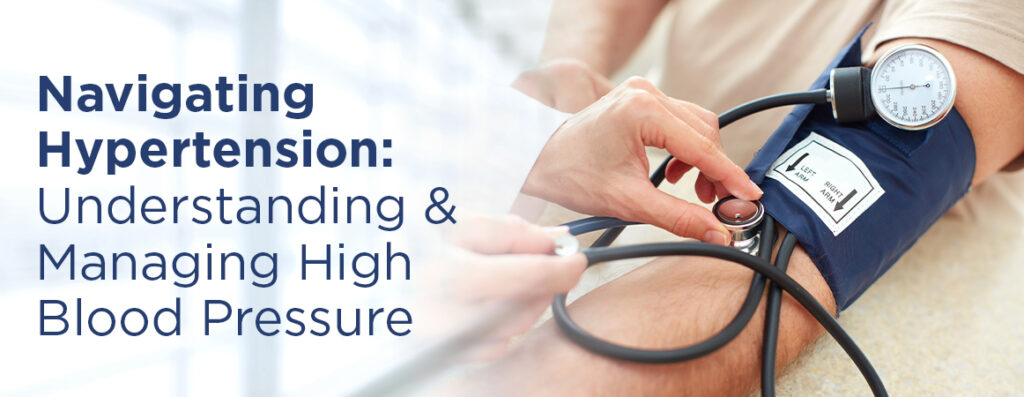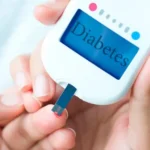The Silent Killer: Why Primary Care is Essential in Managing Hypertension
High blood pressure, or hypertension, is often referred to as the “silent killer” because it can cause severe health issues without noticeable symptoms. Uncontrolled blood pressure increases the risk of heart disease, stroke, kidney failure, and even vision loss. The foundation of effective hypertension management begins with Primary Care. At LocalMd, we prioritize long-term patient relationships that support blood pressure control through consistent monitoring, personalized plans, and preventative strategies.
Primary Care providers are uniquely positioned to manage hypertension across its entire spectrum—from early detection to long-term control—ensuring patients receive comprehensive, evidence-based care.
Early Detection Starts with Routine Visits
Hypertension rarely causes symptoms in its early stages, making routine visits to a Primary Care provider essential. During annual check-ups or routine consultations, providers check vital signs, including blood pressure. Repeated elevated readings signal the need for further evaluation.
By identifying hypertension early, providers can begin lifestyle and dietary interventions before organ damage occurs. Early diagnosis, paired with a personalized care plan, can significantly reduce long-term risks and improve overall health outcomes.
Developing a Personalized Hypertension Management Plan
Every patient’s journey with high blood pressure is unique. Factors such as age, weight, genetics, diet, stress levels, and existing health conditions all influence blood pressure. Primary Care providers take a holistic approach by considering these variables when creating a tailored care plan.
A typical hypertension management plan might include:
-
Medication: Starting or adjusting antihypertensive drugs
-
Lifestyle counseling: Advice on nutrition, exercise, and stress management
-
Monitoring: Regular in-office or at-home blood pressure checks
-
Addressing comorbidities: Managing diabetes, high cholesterol, or sleep apnea
At LocalMd, we ensure every plan is individualized—not generic—because what works for one patient might not work for another.
Medication Management and Compliance
Prescribing blood pressure medication is just the beginning. Ensuring patient compliance and adjusting medications over time are critical steps that take place during follow-up appointments. Many patients discontinue medication due to side effects or misunderstandings about long-term use.
With consistent Primary Care, providers educate patients about:
-
The importance of adhering to prescribed medication
-
How to manage side effects
-
When and how medications need to be adjusted
-
Risks of stopping medication abruptly
Close patient-provider communication builds trust, resulting in better medication adherence and long-term control.
Lifestyle Modification: A Key Focus of Primary Care
Primary Care providers are vital in coaching patients through lifestyle changes that support blood pressure control. This may include:
-
Dietary improvements: Implementing the DASH (Dietary Approaches to Stop Hypertension) diet, reducing sodium intake, increasing potassium
-
Exercise routines: Creating sustainable fitness plans that meet the patient’s ability
-
Smoking cessation programs: Reducing cardiovascular strain
-
Weight management: Targeting obesity to reduce pressure on the heart
-
Alcohol moderation: Advising on safe consumption levels
Ongoing support from a Primary Care team ensures that patients remain accountable and are encouraged to maintain these changes.
Monitoring Progress with Regular Follow-Ups
Blood pressure isn’t static—it fluctuates due to stress, diet, sleep, activity levels, and more. Routine follow-up visits allow providers to:
-
Track trends in blood pressure readings
-
Evaluate medication efficacy
-
Adjust treatment plans in real-time
-
Screen for early signs of complications
These follow-ups are critical. Without regular visits, blood pressure may remain uncontrolled, leading to serious health risks.
Preventing Serious Complications Through Early Intervention
Hypertension, when unmanaged, increases the risk of life-threatening complications such as:
-
Heart attacks
-
Strokes
-
Chronic kidney disease
-
Aneurysms
-
Cognitive decline
Through routine screenings and preventive strategies, Primary Care providers intervene early, reducing these risks significantly. They also ensure patients are up to date on cholesterol checks, kidney function tests, and EKGs, all of which are related to hypertension.
Using Technology to Enhance Hypertension Management
Today’s Primary Care clinics integrate digital tools to enhance hypertension care. At LocalMd, patients benefit from:
-
Electronic Medical Records (EMRs) to track blood pressure trends over time
-
Remote Monitoring Devices that sync at-home readings with the clinic
-
Telehealth Services for easy access to providers between visits
These tools offer convenience, improve patient engagement, and enable faster intervention when problems arise.
Bridging Healthcare Gaps in Underserved Populations
Hypertension disproportionately affects underserved communities due to limited access to nutritious food, healthcare education, and affordable services. Primary Care providers are vital in bridging this gap.
LocalMd is committed to serving the Maspeth, Queens community by offering:
-
Culturally competent care
-
Affordable services for uninsured or underinsured
-
Language-accessible education and consultations
-
Community outreach and prevention programs
This approach ensures equitable healthcare and better outcomes for all.
The Evidence Behind Primary Care’s Role in Blood Pressure Control
Extensive research confirms that consistent Primary Care follow-up improves blood pressure management. According to a study published in the Journal of the American Heart Association, patients with regular access to primary care had significantly higher rates of blood pressure control compared to those who did not.
This underscores the importance of a strong, continuous relationship with a primary care provider—something we strive for every day at LocalMd.
Conclusion: Don’t Underestimate the Power of Primary Care
Managing high blood pressure requires vigilance, consistency, and expertise—everything a trusted Primary Care provider delivers. From early diagnosis to lifestyle support, from medication management to prevention of complications, Primary Care is at the heart of hypertension control.
At LocalMd, we are committed to walking this journey with you every step of the way. Prioritize your health today by making your next appointment—and take a meaningful step toward a longer, healthier life.




